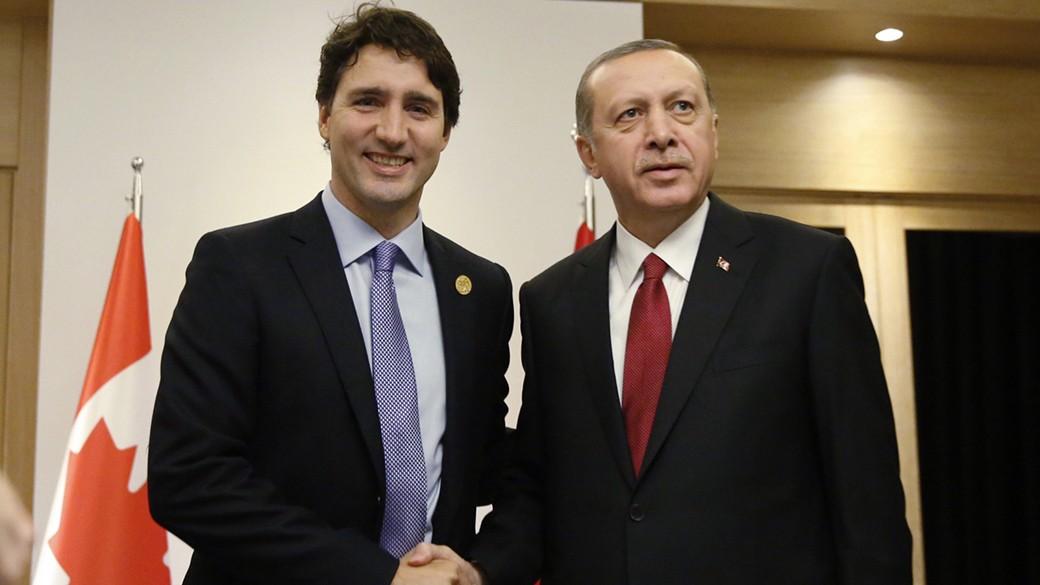
Deadly Force: How the Turks Deceived the Canadians Into Supplying Them with Vital Drone Technology Later Used in Artsakh
Caving to public and political pressure, the Canadian government has submitted documents to its parliament regarding the supply of military products to Turkey.
At issue are surveillance and targeting systems, produced by the Canadian company L3 Harris WESCAM, fitted on Turkish Bayraktar TB2 drones employed by the Azerbaijani military during the 2020 war in Karabakh to deadly effect.
In October 2019, Canada suspended the supply of electro-optical technology used on drones and other platforms to Turkey due to Ankara’s invasion of Syria and the widespread use of Bayraktar TB2 UAVs during hostilities against Kurdish forces. In April 2020, Canada rolled back parts of this suspension. Earlier that month, Canadian Prime Minister Justin Trudeau had a telephone conversation with Turkish President Recep Tayyip Erdoğan.
In May 2020, the Canadian government authorized the export of seven WESCAM systems to Turkey, one of which, months later, on October 19, fell into the hands of the Armenian army after it downed a Turkish-made Bayraktar TB2.
Armenia’s Ministry of Defense, at the time, announced that the Canadian-built camera system, produced in June 2020, was installed on a Turkish UAV in September, just before the war started.
In other words, receiving the new systems from Canada, the Turks installed them on new drones and gave them to the Azerbaijanis, who used them in the recent war.
When it was reported last fall that Canadian technology was being used by the Turkish-Azerbaijani tandem in an offensive against Armenians, Canadian Prime Minister Justin Trudeau announced that their exports must not violate adopted principles and laws. Under Canadian law, the sale of weapons is prohibited if they can be used to violate international humanitarian law or human rights. Then Canadian Foreign Minister François-Philippe Champagne (who resigned in January this year) decided to freeze military supplies to Turkey and launch an investigation. This incensed Turkey, Canada’s partner in NATO.
"Countries that supply the necessary components for Bayraktar drones to Turkey should follow Canada's example and suspend further supplies," said Armenian Prime Minister Nikol Pashinyan in October 2020, encouraged by Canada's move.
But the Canadian press and opposition figures were not as enthusiastic, as there were many unanswered questions that the Canadian government avoided answering.
At the initiative of Jack Harris, a New Democratic Party member serving in Canadian House of Common, the House Foreign Affairs Committee decided to petition the government to make available all documents and correspondence circulating between the Prime Minister and Global Affairs Canada, the Office of the Minister of Foreign Affairs and the Privacy Council Office (PCO - a subordinate agency that supports the Prime Minister and his Cabinet) regarding Canadian UAV technology used in Nagorno-Karabakh.
“The government has not been transparent with Canadians about why, despite having an arms embargo on Turkey, they still ended up selling them WESCAM sensors,” Harris told Canadian ricochet.media. The PCO spokesman, in turn, said that they would work with Global Affairs Canada to satisfy the parliament’s request. The deadline for submitting unedited documents to parliament was late last year.
It now turns out that while the government submitted those documents to the parliament, the most important details were redacted.
Turkey is the fourth largest importer of Canadian military hardware
In December 2020, Hetq wrote about the efforts of lobbyists working for Baykar Defence (the company producing the Bayraktar TB2 and L3Harris WESCAM (the Canadian author of the WESCAM systems), to get the Canadian government to make an exception to the 2019 ban and re-supply Turkey with those systems. (Baykar Defence was founded by Erdoğan's in-laws, the Bayraktar family).
The Canadian website ricochet.media, studying the federal reports on lobbying, revealed that that prior to the exemption, Ken Mackay, a lobbyist hired by Baykar, met in February with Philip Jennings, a senior official in the PCO serving as a deputy secretary to the cabinet, in order to discuss “policies related to Canada’s export of military goods to Turkey.”
According to ricochet.media, Jennings is formally accountable directly to the head of the PCO, Canada's highest-ranking civil servant, and regularly attends government meetings. The Canadian website concluded that lobbyist Mackay and government representative Jennings discussed the issue of lifting the ban on the export of technology used on UAVs, a step that must be finally approved by Canadian Foreign Minister François-Philippe Champagne after discussion in the government.
In the documents released by the government, ricochet.media found the following letter in which Mackay, the lobbyist for the Turks, requested a twenty-minute meeting with Jennings about Baykar Defence.
Mackay writes that Baykar has a long-standing relationship with L3Harris WESCAM and has been doing significant business with Canada for the past four years. The lobbyist notes that the issue to be discussed with Jennings has an "increasing urgency" for Baykar.
Prior to the meeting with Mackay, Jennings's team consulted with Canadian Armed Forces Lt. Col. Philippe Sauvé, who served as the PCO's defense and foreign policy adviser. The officer noted that Turkey is Canada's fourth largest military export destination, following the United States, Belgium and Saudi Arabia, but ahead of partners such as France and the United Kingdom. Accordingly, in 2018, Canada shipped $116 million worth of weapons and technology to Turkey, 140% more than in 2017 ($48 million).
One week after the Mackay-Jennings meeting on February 12, L3Harris WESCAM-hired lobbyist Bruce Hartley met with Olivier Duhaime, Senior Special Assistant to Foreign Minister Champagne. According to the lobbying register, issues of "economic development, industry, defense, international trade" were discussed. But according to ricochet.media, there is no document about this second meeting in the documents made public by the government.
Turkey deceived Canada
Another Canadian media outlet, The Globe and Mail, made some interesting revelations. In the documents provided by the government to the parliament, the media outlet found the letters of Canadian Deputy Foreign Minister Marta Morgan to her boss at the time Minister Champagne. In a memo, Morgan argues for the export of WESCAM items to the Turks, describing it as an "exceptional circumstances" case.
“Based on assurances provided to you by the Turkish foreign minister, [Canadian] officials have assessed that they are intended for use to help protect civilians in Idlib,” Morgan wrote. In other words, the Turks told the Canadians that the drones equipped with WESCAM systems would be used in Syria, in the Turkish-controlled province of Idlib.
“The potential for a renewed Assad regime offensive on the region carries the risk of dire humanitarian consequences,” Morgan argued. “Turkey’s military presence in Idlib may help to deter or delay this eventuality and may mitigate the humanitarian costs if a new offensive is launched.”
In an interview with The Globe and Mail, Canadian researcher Kelsey Gallagher described the move by the Canadian government to make an exception to the embargo imposed on Turkey, so that Ankara would again operate in a third country, Syria, while in 2019, even though Canada declared the embargo because of the policy pursued by official Ankara in the same Syria, as absurd. "Where’s the logic?" Gallagher said.
Opposition Conservative Canadian MP Michael Chong said Turkey had clearly misled Canadian officials about the purpose of using Canadian systems. The opposition figure also stressed that the government was naive and made an unfounded decision. Chong noted that even during the war in Nagorno-Karabakh, Minister Champagne called on the Turkish government to get support Ottawa's candidacy for the post of Secretary-General of the Organization for Economic Cooperation and Development (referring to Trudeau and Champagne's team).
For his part, opposition leader Jack Harris said he felt the government's relationship with Turkey was more important than arms control commitments.
For our part, we can add that, judging by what happened, the Canadian government did not dig much deeper into the military-political situation in the Middle East and the Caucasus and Turkey's aspirations in the spring of 2020, instead preferring not to spoil relations with NATO and its military trade partner Ankara at the same time paying homage to the latter's pleasant lies.
The Turks concealed their dealings from the Canadians
Ricochet.media noted that the cornerstone of making an exception to the embargo on Turkey was the need for cooperation within NATO. Ironically, Ankara later banned Canada from finding out about the use of WESCAM export systems in Turkey. According to public documents, one of the Canadian officers operating in Turkey made three attempts to meet with high-ranking Turkish soldiers within ten days but was rejected because he touched on "a very sensitive topic." This forced the former Canadian ambassador to Turkey (currently holding a high position in Global Affairs Canada) to confess:
"Getting a timely and detailed response from the Turkish Armed Forces/Defense Ministry is probably more than we can expect." In other words, after getting what they wanted from Canada the Turks, slammed the door in their face, making it clear that they should not "poke their noses" into their affairs.
The Canadian media also notes that former Foreign Minister Champagne has consistently tried to downplay the role of WESCAM systems supplied to Turks. In October 2020, during the Artsakh war, Champagne announced that it was merely about "a few cameras". This view has been echoed by those supporting the Canadian government. However, representatives of the Canadian executive branch are quite aware of what they are talking about, since they have been described in internal communiques as "electro-optical surveillance and targeting systems" or "laser imaging and targeting sensor systems”, underscoring their potential use in offensive and deadly missile strikes.
The Canadian government has underestimated journalists and parliament
Important details in the documents made public by the Canadian government about the number of systems exported to Turkey (the names of the companies and the UAVs) are redacted.
Nevertheless, it is a fact that the end user of WESCAM systems must have been Turkey, but the latter, violating its agreement, gave them to Azerbaijan. The documents refer to the end user as the Presidency of Defense Industries (Turkish: Savunma Sanayii Başkanlığı (SSB); an agency subordinate to the Office of the President of Turkey that coordinates the Turkish defense sector), as well as the bodies under the Turkish Ministry of Defense and Interior. Also mentioned are temporary exports for loaner surveillance systems to be used for training purposes. One of recipients is the Turkish Armed Forces, the other is a Turkish defense company. It is noted that L3Harris WESCAM has been receiving export licenses to Turkey since 2010, but the number is kept secret.
The Canadian government justified the editing of the documents provided to the parliament and the redaction of some of the data on the grounds that they contained "information for which disclosure would be injurious to the conduct of international affairs, defence, and third-party competitive positions."
This has angered opposition MPs who say such an answer is akin to responding to a routine request for information, while in this case it is the country's parliament that demands the information.
Interestingly, before sending the documents to the parliament, several government bodies, in response to press inquiries on the same topic, sometimes revealed more details.
For example, in the documents obtained from the PCO through a request from ricochet.media, the name of the same Baykar Defense was not redacted, while in the package obtained by the parliament, the name of the Turkish manufacturer, unlike the local L3Harris WESCAM, was kept secret.
According to ricochet.media, the impression is that the Canadian officials who approved the new deal with Turkey did not expect their move to make an exception to the embargo to be in the media spotlight, as the government-lobbyist partnership usually remains in the shadows.
It turns out that the Canadian government underestimated the monitoring factor of the fourth estate (the press) and the legislature, hoping that the coronavirus epidemic would capture the headlines.
A letter to Champagne, signed by Deputy Minister Morgan, states that "parliamentary scrutiny is expected to be limited given the current COVID-19 crisis.”
As regards journalists, an internal Global Affairs Canada correspondence notes: "The approval of the specific permits mentioned in this memorandum is not expected to garner media attention, as the process is not public.”
 Videos
Videos Photos
Photos
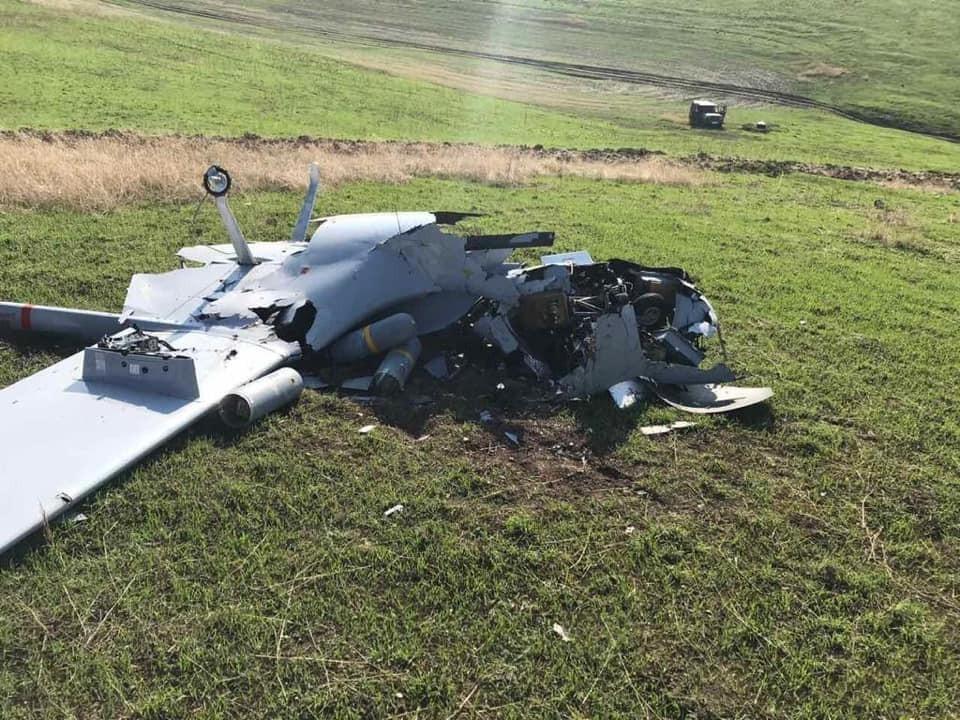
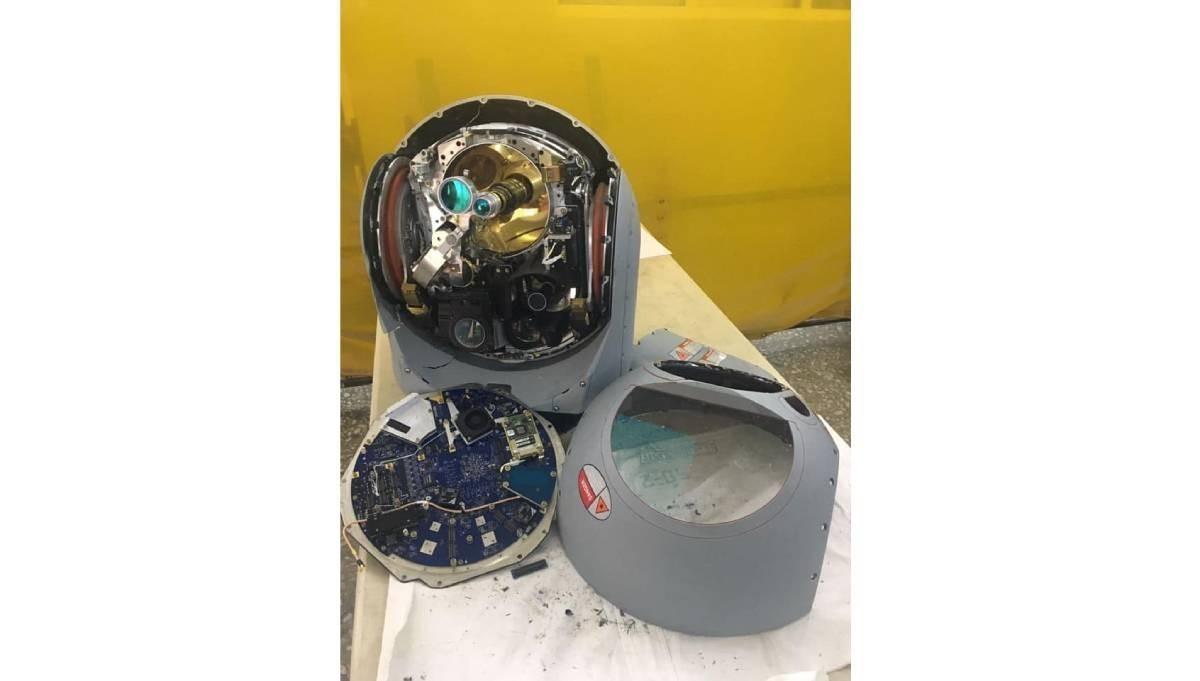
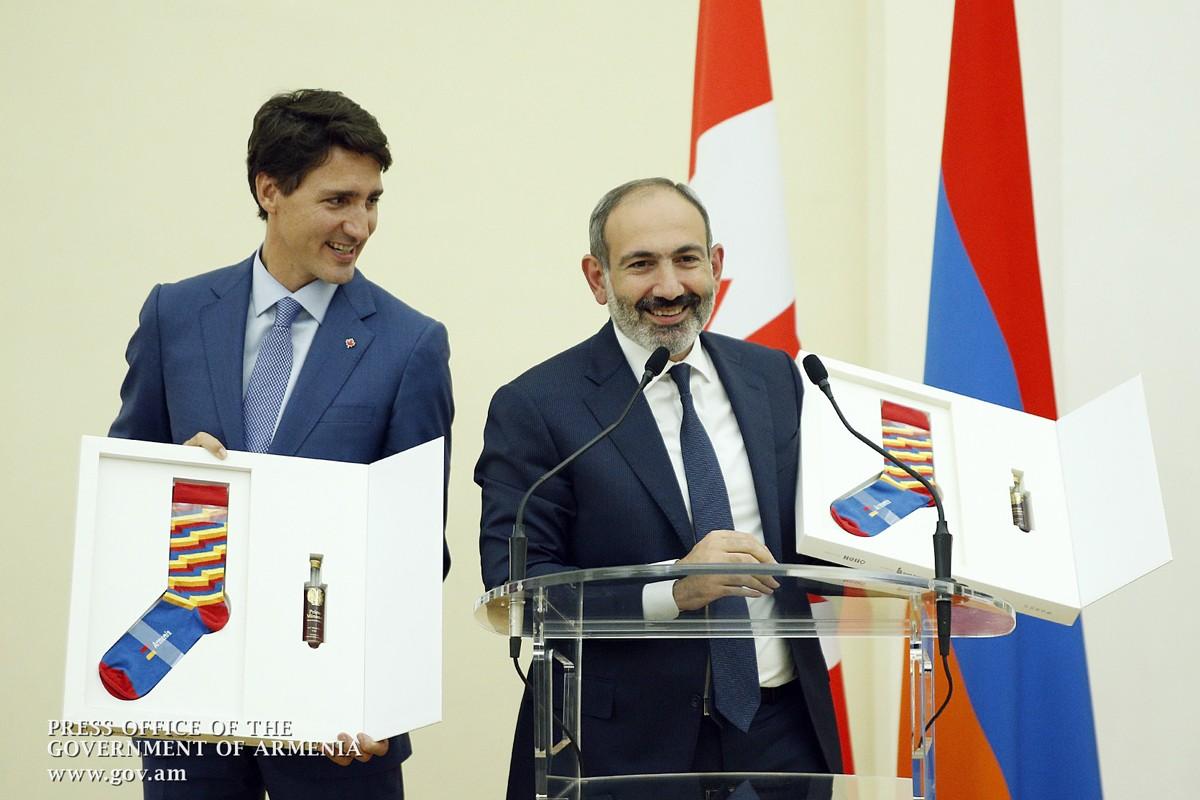
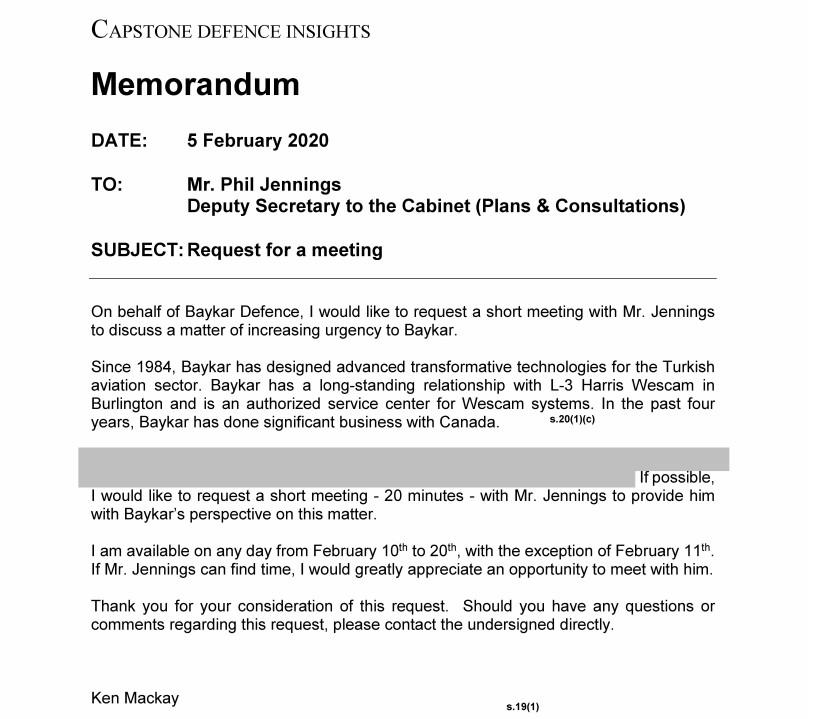
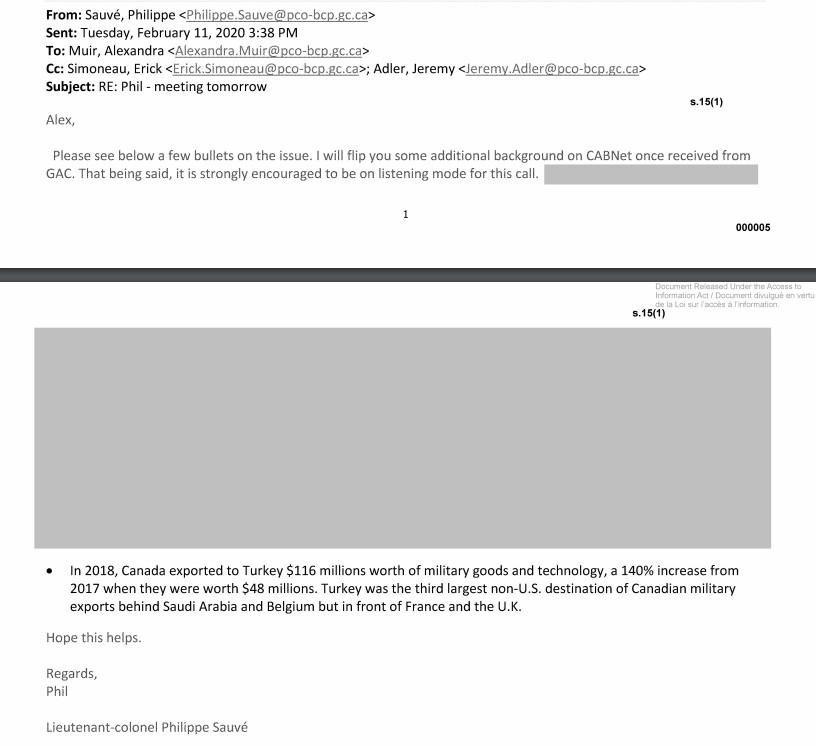
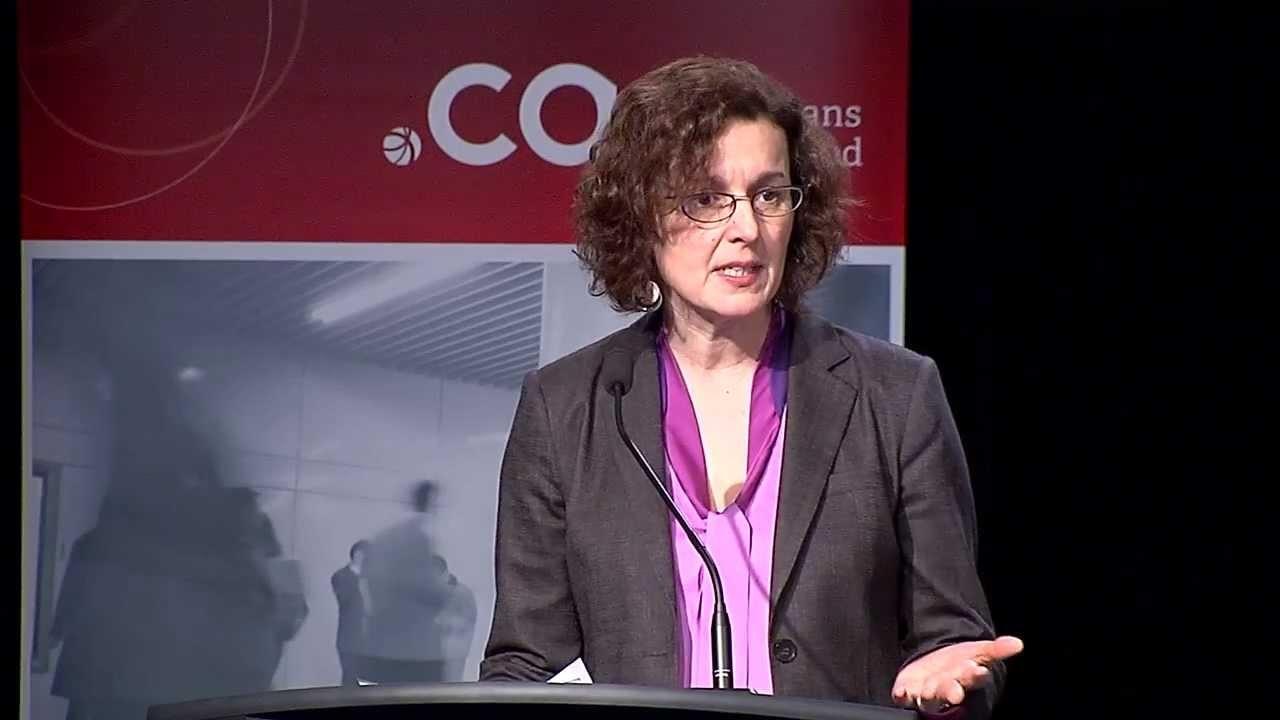
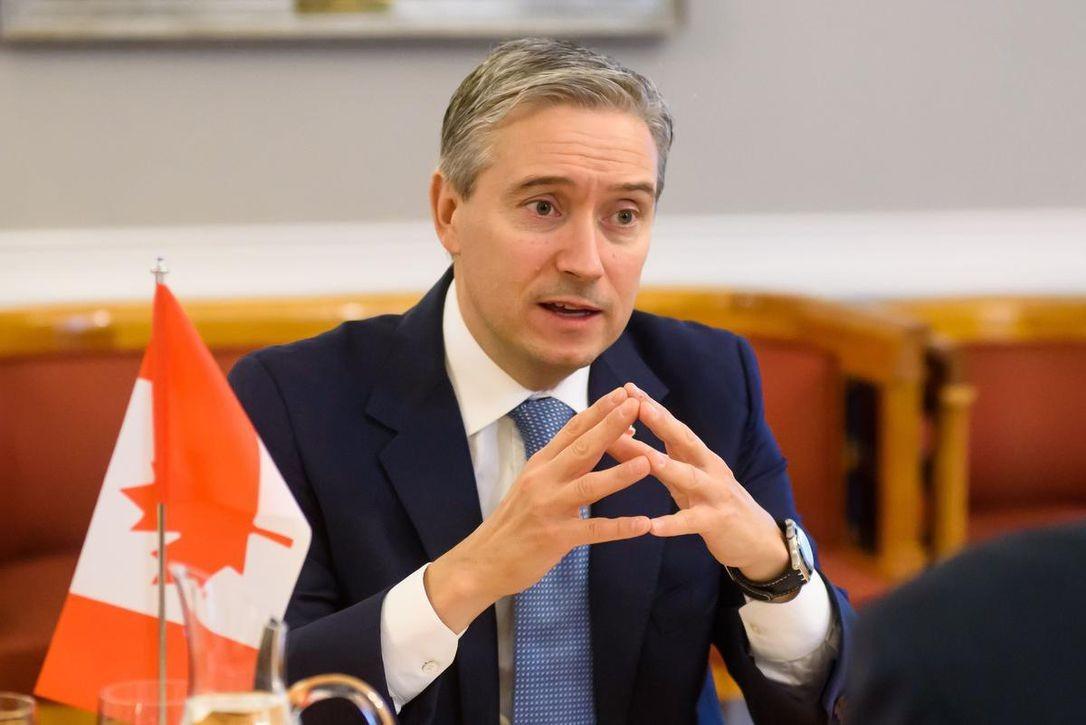
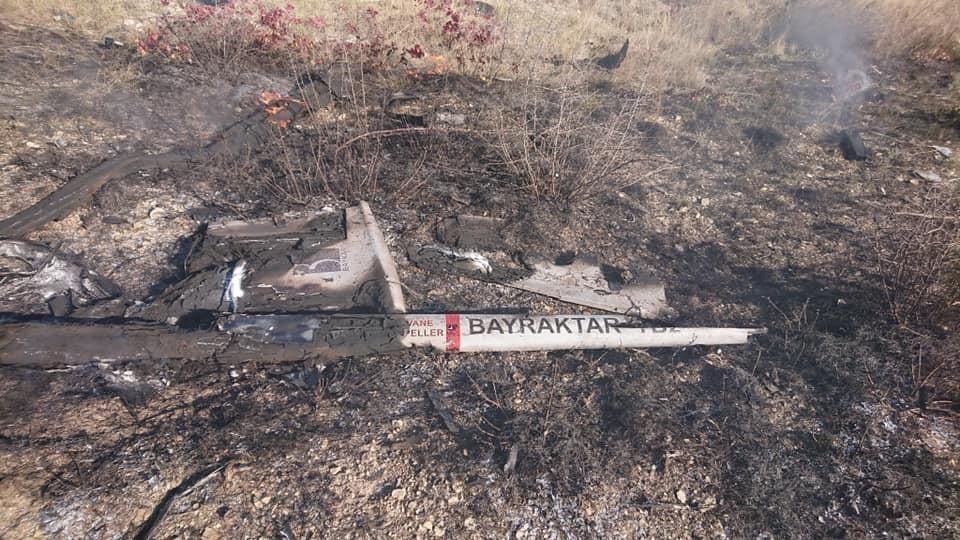
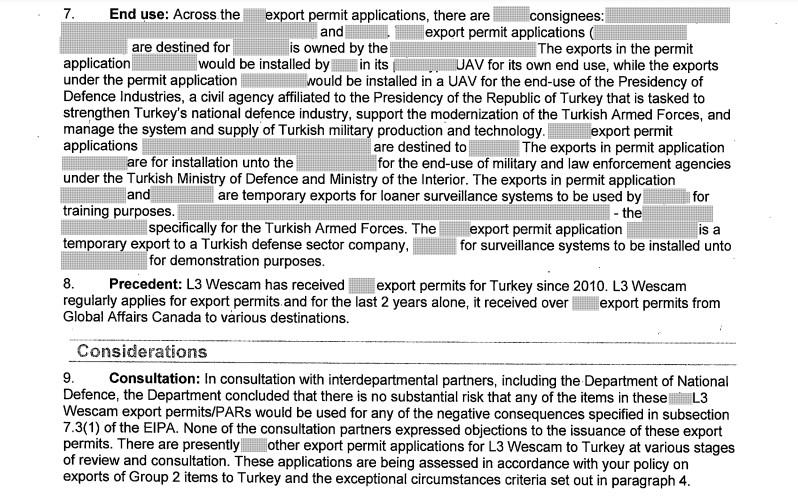
Comments (2)
Write a comment